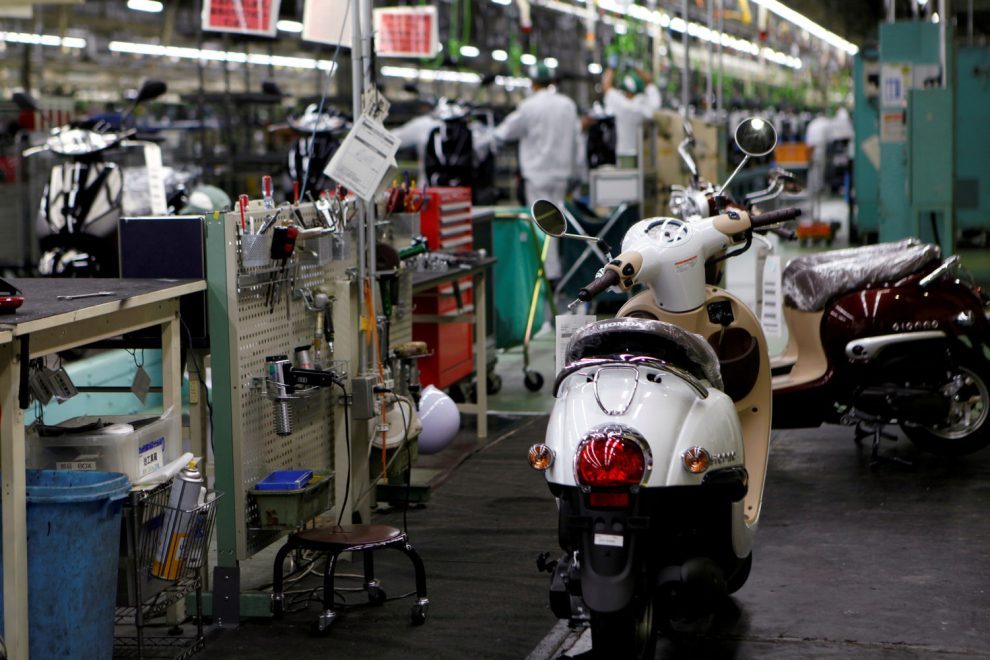(ATF) Japanese manufacturers are showing optimism not seen in more than two years, as strong demand for electronics market and favourable exchange rates boosted exporters’ hopes, a poll showed on Friday.
Manufacturers in the service sector were also slightly less pessimistic than in the previous month, according to the Reuters Tankan poll, which tracks the Bank of Japan’s (BoJ) closely watched quarterly survey.
Manufacturers highlighted uncertainty about the global economic outlook and cited problems with sourcing materials for production, in a sign Japan’s recovery from the coronavirus crisis remains patchy.
Many companies are reluctant to invest amid worries over a fourth wave of Covid-19 cases.
Japan is grappling with rising coronavirus infections, with numbers trending higher in Tokyo after the government ended a state of emergency, and Osaka suffering a record number of cases.
A senior Japanese ruling party official said on Thursday that cancelling this year’s Olympic Games in Tokyo remains an option if the coronavirus crisis becomes too dire.
SEMICONDUCTOR BOOM
Electronic components makers have gained as the pandemic fuelled demand for advanced chips and other products to power devices such as smartphones and laptops, triggering a global chip shortage.
“We expect continued strength in semiconductor-related industries,” Kazuma Maeda, an analyst at Barclays in Tokyo, said.
The Reuters Tankan sentiment index for manufacturers improved to 13 from 6 in the previous month, hitting its highest since February 2019, the survey carried out from April 2-13 showed.
The readings are derived by subtracting the percentage of respondents who say conditions are poor from those who say they are good. A negative reading means pessimists outnumber optimists.
SERVICES SUFFERING
The service sector index remained in contraction for the 14th straight month, rising to minus 3 from minus 5 in March, according to the poll of 482 large and mid-sized companies.
“We expect stagnation in industries hit directly by the decrease in tourism demand, such as accommodations, restaurants and retail,” Maeda added.
He said companies were projecting capex growth of 3% in the 2021 financial year after an estimated decrease of minus 3.8% in 2020.
“However, we believe this figure may be inflated by the transfer of expenditures originally planned for FY20, leaving it vulnerable to downward revision in the next Tankan,” Maeda said.
With reporting by Reuters
























